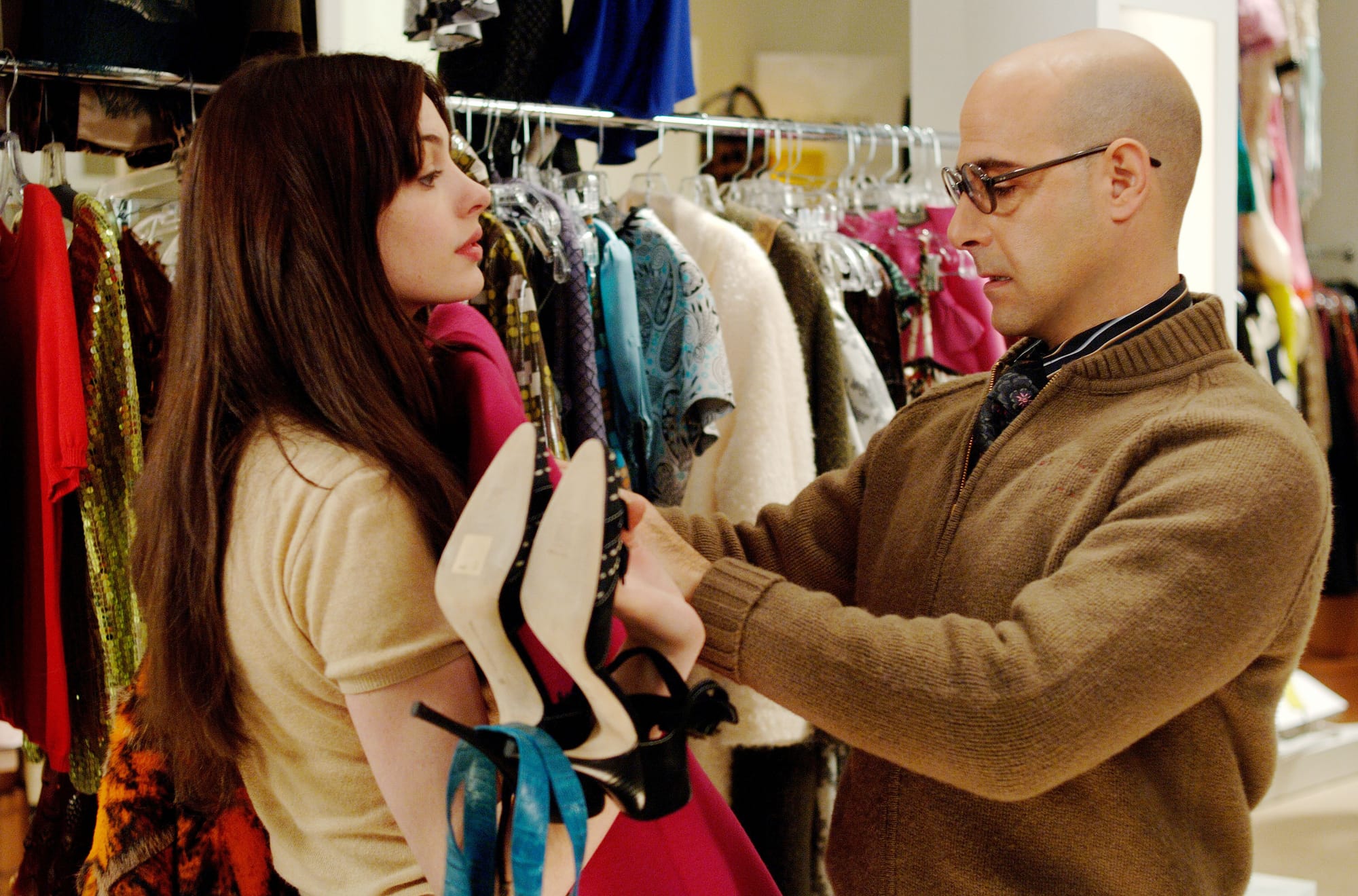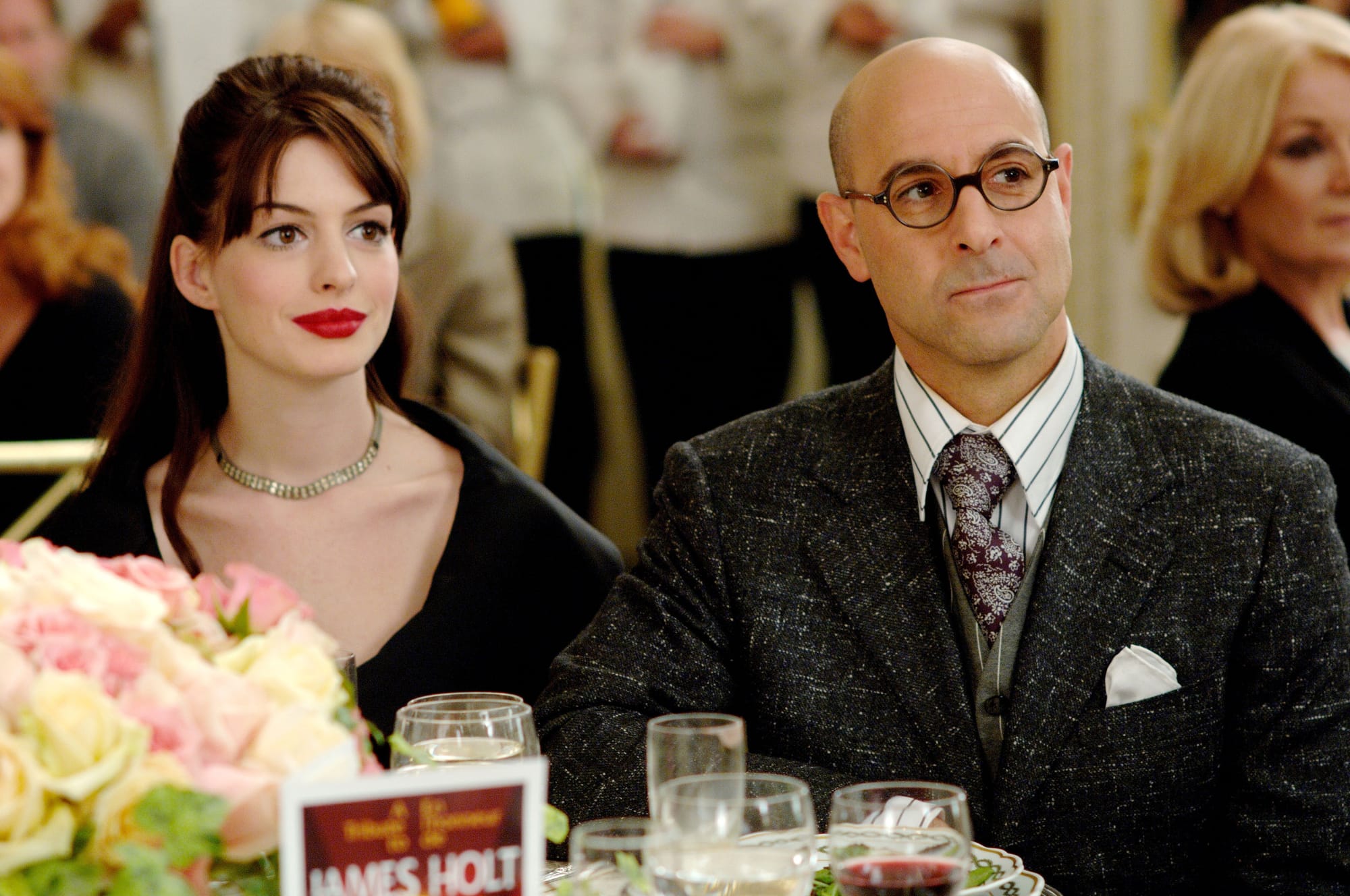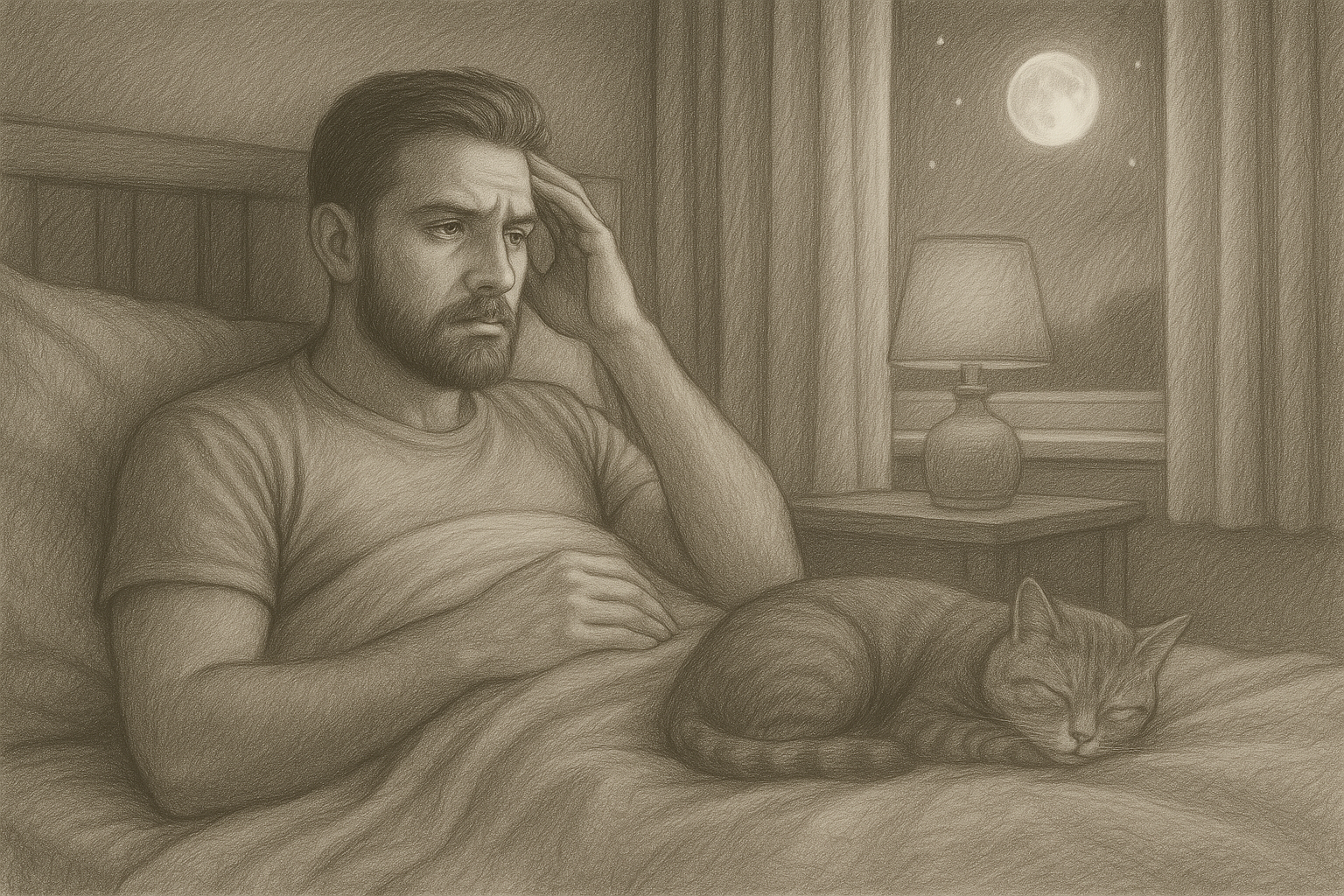- Why do we still expect fairness from systems that have never promised it?
- What are the visible and hidden costs of organisational belonging?
- How can evolutionary psychology help us unlearn the myth of meritocracy?
Occasionally, a film that appears light on the surface carries lessons that linger long after its final scene. The Devil Wears Prada (2006) is one such film, where behind the gloss, glamour and splendour of a revered institution — “A million girls would kill for this job” — lies a sobering meditation on the quiet theatre of the corporate world: a system that promises reward through excellence, yet often trades loyalty for leverage. Nigel’s (Stanley Tucci) arc, quietly devastating, becomes a lens through which we glimpse the elegant brutality of a world that celebrates merit only when it serves its own ends.
It's hard, if not impossible, not to like Nigel. He is brilliant, devoted and dependable — everything that meritocracy advocates love to spotlight when they need you and quietly sideline when they don't. He doesn't just work at Runway; he belongs to it. And to Miranda, whom he's been loyal to for longer than some careers last and whom he believed would have his interests at heart. But in the world of high fashion and even higher stakes, devotion is often just another accessory: admired, applauded and quietly discarded when no longer in season.

The corporate world seldom, if ever, runs on gratitude; it runs on leverage. And when leverage calls, even the brilliant and the loyal become collateral: useful but ultimately dispensable. It's this deliberate, brutally calculated architecture — and the institutions it breeds — that makes Nigel's reckoning so elegiac. We don’t grieve the rejection or the missed opportunity, but the knowledge and the silent recognition, dormant until surfaced, that the system works exactly as designed — and that we go along with it. Long after the credits have faded from the screen, we may still find ourselves musing in quiet despondency whether we, too, were complicit at some point in helping the corporate theatre of meritocracy win the battle in which reciprocity became the first casualty. And we may also wonder not if the system failed Nigel, but if it ever cared to begin with.
A familiar script
Perhaps what makes Nigel’s story so quietly disarming is not just its familiarity, but how deeply it resonates with a belief many of us carry — often unconsciously. The belief that the world we inhabit is fair and just and that people get what they deserve; effort in, reward out. This deeply ingrained need to believe that good outcomes follow good behaviour is what psychologists call the just world hypothesis (Dalbert, 2009). This idea, comforting but speculative, is so deeply embedded that we rarely pause to question its premises, accepting the wisdom that is more received than truly lived (Trevisan et al., 2022). It's hard to argue against something that is so pervasive, especially when it’s etched in Scripture, the most published book in human history, distributed and promoted by the agency that has operated, uninterrupted, for over two millennia. For instance, consider these words: 'Let us not become weary in doing good, for at the proper time we will reap a harvest if we do not give up' (Galatians 6:9) alongside another assurance: 'God is not unjust; he will not forget your work and the love you have shown him.' (Hebrews 6:10).
Interestingly, the paradox of the Good Book is that, contrary to the reputation it's acquired in more militant secular circles, it often resists the very dogmatism it’s accused of. Far from offering tidy resolutions, it leans into ambiguity, echoing the contradictions and complexities of the human condition. Even the myth of meritocracy is quietly exposed within its pages for those who read carefully: 'In this meaningless life of mine I have seen both of these: the righteous perishing in their righteousness, and the wicked living long in their wickedness' (Ecclesiastes 7:15). So what is it that keeps our faith in justice alive — is it nature, in its infinite complexity; divinity, in its infinite wisdom; or is it us, fragile and longing for meaning, suspended in the infinite vastness of an uncaring cosmos? We may never fully understand — not now, perhaps not ever — what truly drives our longing for effort-reward equilibrium. And yet psychology, for all its limitations, can offer a few lenses through which to look: not for certainty or to resolve the paradox, but to better understand the stories we tell ourselves about fairness and fate.
The high cost of belonging

'You think this is just a magazine? This is not just a magazine. This is a shining beacon of hope for… oh, I don’t know… let’s say a young boy growing up in Rhode Island with six brothers, pretending to go to soccer practice when he was really going to sewing class and reading Runway under the covers at night with a flashlight.' [00:33:30]
What we hear from Nigel is more than an anecdote from his autobiography; it's a sermon. A public proclamation of unconditional, unwavering loyalty to the institution that shaped not just his craft, but his sense of self. At one point, aghast at the indifference shown toward what he holds sacred, his composure slips, and he laments, with the anger he is just containing:
'You have no idea how many legends have walked these halls. And what’s worse — you don’t care.' [00:33:50]
Taking pride in one's vocation and sharing the values of the organisations we inhabit isn't a problem; it's a blessing, albeit one that's becoming increasingly elusive. The real danger begins when the boundary between what we do and who we are blurs, and what was once external becomes indistinguishable from the self. When personal identity becomes fused with one’s role or employer, we enter what psychologists call organisational over-identification (Pratt et al., 2016) — a fusion that, as Nigel’s story reveals, can lead us to surrender identity, time and sanity in the hope that devotion might someday be rewarded.
'Let me know when your whole life goes up in smoke. Means it’s time for a promotion.' [00:57:09]
This is it. The final homily of a belief system built on the quiet conviction that what separates us from reward is simply the willingness to endure. Long enough for the system to notice. It will notice, we tell ourselves. It has to. It must. But we forget that the system is merely a reflection of its creators: flawed, self-preserving and shaped by the same evolutionary imperative to survive, whatever the cost; fairness is optional (Cropanzano & Ambrose, 2015). Only when we acknowledge this and accept that the world doesn’t always reward effort with justice, can we begin to release ourselves from the comforting illusions we’ve clung to and see things as they truly are. The challenge, however, may be less about seeing and more about noticing — noticing what rises into focus and the interpretations we instinctively assign. What do we see when we hold a mirror steady long enough? Do we blame the system? Do we blame ourselves? Or do we quietly concede that it was always both?
Blame is mirror, and it moves
For over seventy years, psychologists have studied the events that befall us. The attributions we make, whether self- or other-directed, often speak volumes about who we are and the wider environment and worldviews we inherit, inhabit and continue to forge (Van Lange et al., 2012). What’s interesting, though, is that the notion of personal responsibility predates the rise of the scientific mind and finds early expression in the book that shaped our moral outlook more than any other. ‘For each one should carry their own load’ (Galatians 6:5) stands as a quiet but enduring affirmation: we, and only we, are accountable for our own actions. Until we aren't. Until we are reminded, by the same ancestral manuscript, that 'In the place of judgment — wickedness was there, in the place of justice — wickedness was there' (Ecclesiastes 3:16). A powerful reckoning, isn't it? A reminder that meritocracy, the central organising myth of neoliberal order, is just that: an option, not a guarantee. So how do we reconcile the need to remain agentic with the obligation to stay attuned to broader forces — before disillusionment arrives, as it did for Nigel?

Nigel: 'When the time is right, she’ll pay me back.'
Andy: 'You sure about that?'
Nigel: 'No. But I hope for the best. I have to.'
[01:35:10]
Old habits die hard. Even in the face of final, unquestionable resolution, we still cling to the comforting, if often unhelpful, dream that the uncaring cosmos might, in the end, care. The scripts woven into our collective memory long before we arrived in this world remain a stronghold of meaning and motive. But like any stronghold built to endure, there's always a moat — and a way to cross it.
Beyond the moat
There are many ways to cross a moat. We can storm the walls with the fury of righteous revolt. We can wait for the drawbridge to lower, hoping our time will come. Or we can take a quieter route and search for secret tunnels. The ones not dug with shovels but with questions that carve passage through inherited scripts we've so long mistaken for maps. Once we start to question the coordinates, we may begin to see that freedom doesn’t always lie beyond the moat, but somewhere nearer: in the courage to ask where we learnt the path in the first place. Could it be that the path we follow is older than us, older than the strongholds we've built and the myths of meritocracy we've mistaken for universal truths? The myths that stretch back to those who lived — and were desperate to survive — on the unforgiving savanna. What if being seen as valuable once meant survival and still feels like safety, even when it isn’t? We may want to ask ourselves:
- What early signals taught me that effort equals safety, and do they still hold true?
- When I feel overlooked, do I interpret it as danger?
- What part of me still believes that being useful guarantees protection?
- When I strive to be the best, am I seeking excellence or trying to avoid exclusion?
- How often do I mistake hierarchy for fairness and assume those at the top must be the most deserving?
That kind of introspection isn’t easy and it rarely unfolds on schedule or a series of weekly workshops. Instead, it asks us to build new muscles and sit with discomfort; to question what feels instinctively true because it's so deeply ingrained. But we don’t have to start in solitude: films offer a way in. Through their characters, we can catch glimpses of our own scripts and begin to loosen the false binary between personal responsibility and systemic blame. Because like most binaries, that split is seductive but narrow in scope. By moving away from certainty and toward the uneasy clarity of 'it depends', we may begin to free ourselves from the myth of meritocracy and slip, finally, through one of the quieter tunnels home. In slipping through the tunnel, we don’t escape the system — we outgrow the need for its approval, and learn, at last, to belong to ourselves.
Margins and marginalia:
- Cropanzano, R. S., & Ambrose, M. L. (Eds.). (2015). The Oxford Handbook of Justice in the Workplace. Oxford University Press. https://doi.org/10.1093/oxfordhb/9780199981410.001.0001
- Dalbert, C. (2009). Belief in a just world. In M. R. Leary & R. H. Hoyle (Eds.), Handbook of Individual Differences in Social Behavior (pp. 288–297). The Guilford Press. https://psycnet.apa.org/record/2009-12071-019
- Holy Bible. (2004). King James Version. Thomas Nelson.
- Lange, P. A. M. van, Kruglanski, A. W., & Higgins, E. T. (Eds.). (2012). Handbook of Theories of Social Psychology. SAGE. https://doi.org/10.4135/9781446249222
- Pratt, M. G., Schultz, M., Ashforth, B. E., & Ravasi, D. (Eds.). (2016). The Oxford Handbook of Organizational Identity. Oxford University Press. https://doi.org/10.1093/oxfordhb/9780199689577.001.0001
- Trevisan, F., Rusconi, P., Hanna, P., & Hegarty, P. (2022). Psychologising meritocracy: A historical account of its many guises. Theory & Psychology, 32(2), 221–242. https://doi.org/10.1177/09593543211057098
Images used throughout the article are from The Devil Wears Prada (2006), featuring Andrea Sachs (Anne Hathaway), Nigel (Stanley Tucci) and Miranda Priestly (Meryl Streep). Courtesy of MovieStillsDB. Copyright remains with the original rights holder; included under fair use for non-commercial, educational commentary.





Discussion